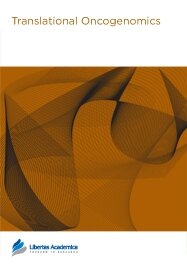

Publication Date: 05 Dec 2006
Journal: Translational Oncogenomics
Citation: Translational Oncogenomics 2006:1 53-63

Chronic eosinophilic leukemia is a clonal disease characterized by hypereosinophilia and eosinophilia-related pathologic manifestations. Recently, the fusion gene FIP1L1/PDGFRA was found in the long arm of chromosome 4 and its expression has been shown to be associated with development of a clinical hypereosinophilic syndrome (HES) in a significant proportion of patients. FIP1L1/PDGFRα, the product of the gene FIP1L1/PDGFRA, is a constitutively activated tyrosine kinase and can be inhibited by imatinib mesylate. Several investigations have tried to dissect the mechanism of leukemogenesis and signaling induced by FIP1L1/PDGFRα in cell lines, primary human eosinophils and in murine myeloproliferative models. In this review, we analyzed the current knowledge on the relationship between FIP1L1/PDGFRα-induced signaling and eosinophil proliferation, survival and activation, specially focusing on its possible role in the modulation of cytokine and chemoattractant signaling pathways.
PDF (1.08 MB PDF FORMAT)
RIS citation (ENDNOTE, REFERENCE MANAGER, PROCITE, REFWORKS)
BibTex citation (BIBDESK, LATEX)
XML
PMC HTML

As an author of a review published in Translational Oncogenomics, I was impressed by the prompt processing and speed of publication. The entire submission, review and publication process was easy, quick and pleasant. The comments from reviewers and associate editor were high quality, scientifically deep and objective. It was a great pleasure to cooperate with such qualified and friendly team. I highly recommend publication in Libertas Academica journals.
Facebook Google+ Twitter
Pinterest Tumblr YouTube